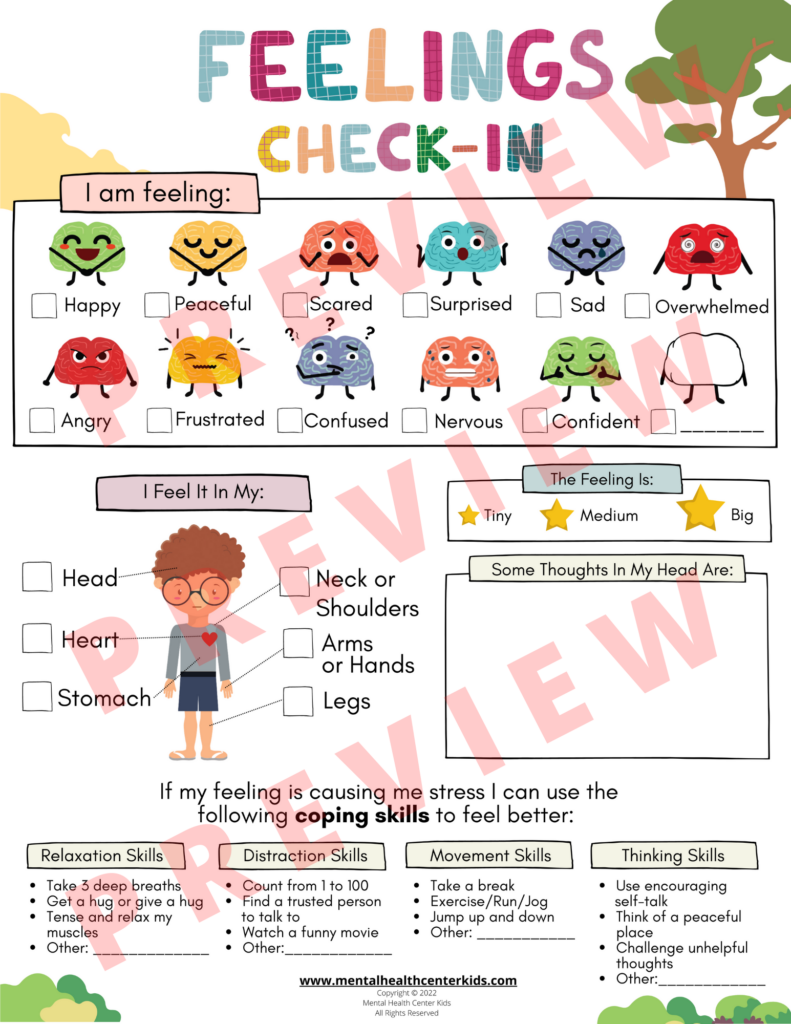A check in activity:
- What it is: A feelings check-in is a way for play therapists to help children become more aware of their emotions and how they are experiencing them.
- How it works:
- Play as a Medium: Play therapists use play as a medium for children to express emotions that may be difficult to articulate verbally.
- Tracking and Reflecting: Therapists track the child’s emotional state through their play and then reflect back to the child what they are observing, helping them to validate their feelings and build self-awareness.
- Examples:
- “You seem really sad that the bear can’t find its family”
- “It looks like you’re feeling lonely because the character is all by themselves”
- Using a “feelings dial” to explore the intensity of emotions
- Playing “Feelings Go Fish” to identify and express feelings
- Using a “Color Your Feelings” activity to visually represent emotions
- Benefits:
- Emotional Awareness: Helps children identify and name their feelings.
- Self-Regulation: Promotes the ability to manage and regulate emotions.
- Social Empathy: Fosters understanding of others’ emotions.
- Building Trust: Creates a safe and validating environment for emotional exploration.
- Developing Coping Skills: Provides opportunities to practice healthy emotional expression and coping mechanisms.
- Examples of Activities:
- Internal Weather Report: “If your mood were the weather, what would it be?”
- Feelings 1-10: “Rank your mood today on a scale of 1 to 10”
- Pop Culture: “If your current mood were a song or movie, what would it be?”
- Highs & Lows: “What was the best and worst thing that happened to you today?”
- Rose, Bud, Thorn: “What’s something good that happened, something you’re looking forward to, and something that was difficult?”

